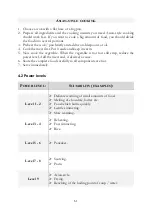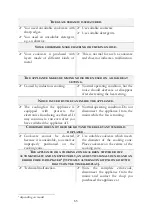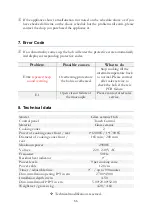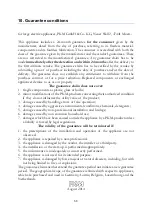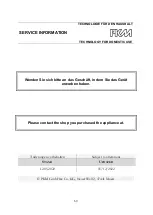
62
4.3 Saving of energy
❖
Use proper cookware for cooking.
❖
Cookware with thick, flat bases can save up to1/3 of electric energy. Remember
to cover your cookware if possible; otherwise you will use four times as much
energy!
❖
Match the size of the cookware to the surface of the heating plate. A cookware
should never be smaller than a heating plate.
❖
Ensure that the heating plates and the cookware are clean.
❖
Soils prevent heat-transfer. Repeatedly burnt-on spillages can often be removed
by products, which will damage the environment, only.
❖
Do not uncover the cookware too often (a watched pot-content will never boil!).
❖
You can use the
residual heat
for saving energy when starting a new cooking
procedure on a cooking zone which is still warm / hot.
5. Cleaning and maintenance
WARNING!
Switch off the appliance and let it cool down before
cleaning. Disconnect the appliance from the mains before maintenance
(fuse box of your household power supply)!
WARNING!
Do not use a steam cleaner. Risk of electric shock! The
steam can damage the electric components of the appliance.
D
ETERGENTS
:
➢
Do not use any abrasive detergents !
➢
Do not use any organic detergents !
5
➢
Do not use essential oils !
➢
Never use solvents !
C
LEANING OF THE HOB
:
➢
Clean the hob after use.
➢
Clean the glass-ceramic with a commercially available detergent for glass-ceramic.
Use a special sponge and warm water.
➢
Remove residuals on the glass-ceramic with a soft cloth.
➢
Do not scrub the glass-ceramic.
➢
Remove residuals with a silicon-made scraper, which is suitable for glass-ceramic.
Such scrapers are commercial available.
5
Detergents such as vinegar, citric acid etc.














